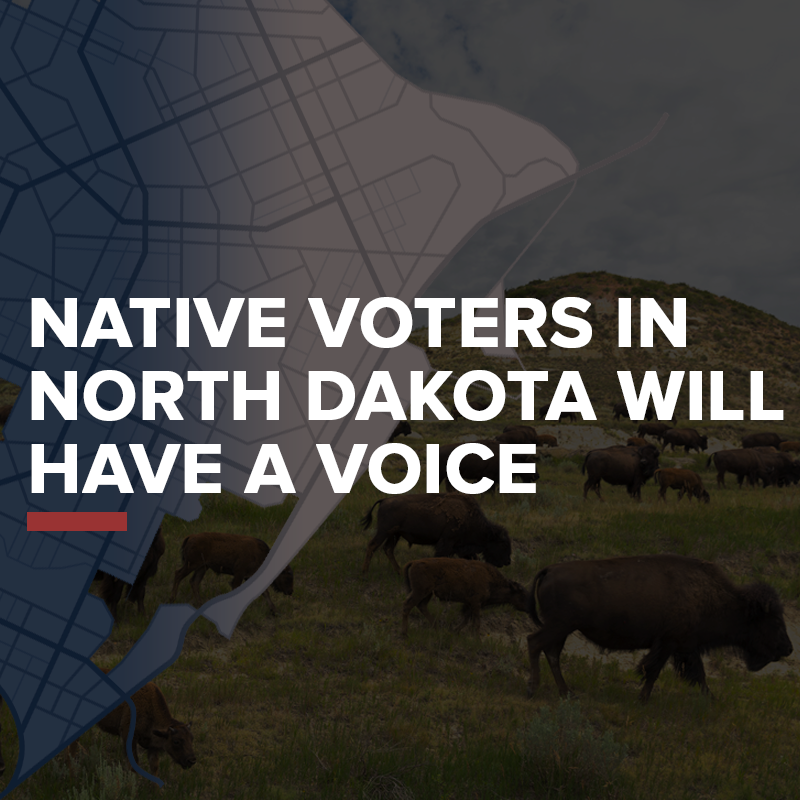
After North Dakota elected officials failed to redraw state electoral maps to ensure Native Americans are not denied a fair opportunity to elect state legislators, on January 8, 2024, the U.S. District Court for the District of North Dakota ordered fair maps into place that will end the unlawful dilution of votes cast by Native Americans. In the same order, the court also denied the North Dakota Legislature’s latest attempts to delay implementation of new state legislative maps.
The order was issued as part of a case challenging the North Dakota Legislature’s 2021 redistricting plan filed by the Turtle Mountain Band of Chippewa Indians, the Spirit Lake Tribe and tribal members from both tribes. The new court-ordered map is the same redistricting plan proposed by the Tribes to the Legislature during the 2021 redistricting process, which the Legislature refused to adopt.
“The court properly recognized the voting strength of our tribal members must not be diluted,” said Turtle Mountain Band of Chippewa Chair Jamie Azure. “When I testified in favor of a fair redistricting plan to the members of the Legislature during the 2021 redistricting process, my words were ignored. It is unfortunate that litigation was required in order for a lawful plan to be put in place.”
In November, the court found that the 2021 North Dakota Legislative District map dilutes votes cast by Native Americans in violation of Section 2 of the Voting Rights Act. Instead of using the opportunity provided by the court to draw a fair map, state officials filed legal motions seeking to delay the court order and to leave the discriminatory maps in place for 2024. As a result, despite receiving more time than courts typically provide to fix unlawful maps, the state missed the deadline to propose a remedial plan of its own.
“For so many years, generation after generation, Native people have had to defend their right to vote in North Dakota,” said Spirit Lake Tribal Chair Lonna J. Street. “This court order marks a milestone closer to the day when Native people participate in redistricting and in elections as equals to our non-Native neighbors.”
The Native American Rights Fund (NARF), Campaign Legal Center (CLC), and the Law Office of Bryan L. Sells, LLC, represent the plaintiffs in their suit. Tim Purdon of Robins Kaplan LLP represents the Turtle Mountain Band of Chippewa Indians and the Spirit Lake Tribe.
“The tribal plaintiffs’ hard-fought victory means Native American voters in North Dakota will be able to vote in fairly and lawfully drawn legislative districts in this year’s elections,” said NARF Staff Attorney Michael Carter.
“North Dakota’s Native voters deserve to vote under fair maps in 2024 and beyond,” said Molly Danahy, senior legal counsel at Campaign Legal Center. “We applaud the District Court’s order, which will ensure that North Dakota’s Native voters can make their voices heard and elect leaders who will best serve their communities.”
Read more about: Turtle Mountain Chippewa et al v. Howe
More blog posts

